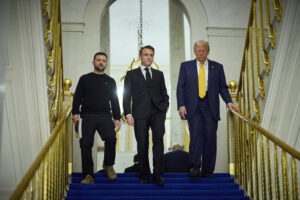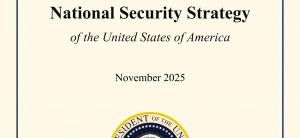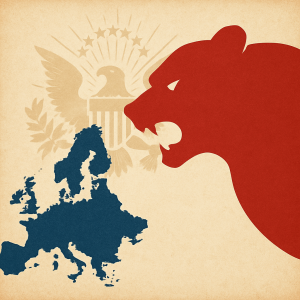China would benefit from it threefold. If the peace plan it intends to present at the end of the week really opens up the prospect of a settlement in Ukraine, China would avoid a brutal slowdown in international trade, which would seriously damage its economy and political stability. For China, the issue is vital, but that is not all.
If it succeeds in silencing the guns in Europe, China would at the same time – and this is a second benefit – become a major power, not just economically and militarily, but also politically. Its international weight would be so considerably increased by this move that, in the first quarter of this century – the third benefit – it would be on a par with the United States, becoming one of the two superpowers.
It is obvious that the head of its diplomacy, Wang Yi, opened quite a round by going to Paris last week and then to the Munich Conference before heading to Moscow this week… but what cards does China have?
It will not be able to impose anything on anyone and certainly not overnight. It is even possible that it will start by not succeeding. It is not even impossible that it will then decide to deepen its rapprochement with the Kremlin but, apart from the fact that it would not be in its interest, China has two major assets.
The first is that it can exert decisive pressure on Vladimir Putin. Not only can it threaten to isolate him on the international stage by finally condemning the aggression committed against Ukraine, but it can also cause serious damage to the Russian economy by no longer buying the oil that Europe has placed under embargo. The Russian president cannot, in other words, ignore the only ally he has in the UN Security Council, and even less so because the Chinese peace plan, the broad outlines of which were opportunely leaked last weekend, is of interest to all parties.
On the one hand, the Chinese intend to demand respect for UN principles and consequently for the territorial integrity of states. If words have any meaning, this means that Russia should, in their eyes, withdraw from the entire territory of Ukraine, including Crimea. It is understandable that the Ukrainians are delighted with China’s entry into the scene, but on the other hand, Chinese diplomacy insists that nothing could be done without Russia’s “security interests” being assured.
The Chinese thus legitimise the reasons that allegedly pushed Vladimir Putin to go to war, even though he was in fact driven only by imperial ambitions. Better still, they offer him a way to save face by obtaining new guarantees that would allow him to justify his withdrawal from Ukraine, or even a renunciation of Crimea. It is obviously on this question of security that everything will be played out because what security guarantees, and from whom, could Russia obtain and who could, in exchange, guarantee what to Ukraine, which is not the aggressor but the aggressed?
It is easy to see what the outcome of behind-the-scenes negotiations and subsequent official negotiations could be. Ukraine could renounce joining the Atlantic Alliance and declare itself neutral but obtain a commitment to military protection from the major Western military powers, the United States, France, Great Britain and, perhaps, Poland. It is not entirely coincidental that the terms of such protection are increasingly being debated in several of the capitals concerned.
“Something is cooking”, but nothing solid can be done without a peace agreement that ultimately defines a continental stability based on guarantees and constraints that are binding on all, from Lisbon to Vladivostok. The only way out of this war is to tackle the problem in its continental dimension. Like France, the Chinese have understood this, but we are not there yet.



